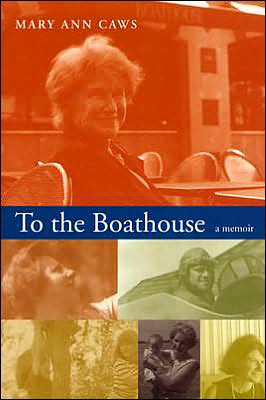Walking (Even Now) With Carolyn
 As I now see it, my memoir is based on growing up in the South. First
of all, what that might do to you. But secondly - and way under that - what
it might, in the long run, do for you. What kind of feminist can an
inbred Southerner be, wherever she ends up living? Isn't that learned
restraint, ingrained politeness, understatedness and all that
contradictory to any outspokenness such as feminism requires?
As I now see it, my memoir is based on growing up in the South. First
of all, what that might do to you. But secondly - and way under that - what
it might, in the long run, do for you. What kind of feminist can an
inbred Southerner be, wherever she ends up living? Isn't that learned
restraint, ingrained politeness, understatedness and all that
contradictory to any outspokenness such as feminism requires?
Carolyn and I discussed this, sometimes straight on and sometimes
glancingly, in our weekly walks over the many years in which I was
writing To The Boathouse. She wanted very much to have our
picture together in it, and there it is. The two-of-us-plus-dog picture,
which serves as a background for an announcement of this conference, was
taken by Jim, and I love it dearly.
That's not the one in here. The one in here is one where we're both
doing things at the MLA, and that's a choice of the editors. In a sense,
anything I say now or read now has to do with that background - the
background of walking with Carolyn in the park, and talking about the
things we talked about. So I dedicate this talk to her, naturally.
Our discussions often turned around the topic of Southern-ness. As
for what the South, or any South or my South, might have done or keep on
doing for you, the main thing is probably that very contradiction
itself - between the way you were brought up and the way you have, then, to
bring yourself up.
Ironically, and just as precisely, that's what can't be put into
words. It can't be spoken and named, only written. Some things I
couldn't write either. For instance, what Carolyn always wanted me to do - she
always wanted me to talk about class difference in the South. I
can't. Not that I wouldn't, but I couldn't.
What I could tell most efficaciously concerns my klutziness, if I may
borrow that term from my New York friends. Carolyn loved best my weekly
stories of my mishaps and forgetfulness and awkwardness - all odd tales
of the oddnesses in my disorganized living, so different from hers.
Perhaps I overstated those tales for her. Perhaps I overlived that
part of my living for her. I would greet her expectant face every week
with some new story of my awkwardness. Actually, a great part of my
memoir, which you will hear a little of, is about that: Losing my place,
my slides, my credit cards, my identity. Losing my text somewhere in
Australia. Losing my way somewhere in the Saskatoon snow. Missing the
plane to Winnipeg or to Paris. That sort of thing.
Accidents, incidents - it's not anything deep or true; not at all
like the basis of my beingness, which is a kind of drivenness. I always
want to be somewhere else. I always want to write somewhere else. I want
to do something, always, that I haven't done - choose a new subject, be
a new subject. I've always called that dilettantism, but I've been told
to say it's just energy. (laughter)
I still think it's dilettantism. That's always been my truest place.
Memoirs want to be about truth, don't they? Even as we arrive at that
through such peculiar means, including fiction. So I had to write about
love and betrayal on both sides of a very long marriage. How do you do
that without rage or bitterness or self-indulgence?
I gave this my best shot and I hope it comes over, despite all the
fictionalizing of fact or embroidery of memory or undone overstatement
of incidents and accidents and whatever else. After the fact, I and many
of us tend to call it history.
|